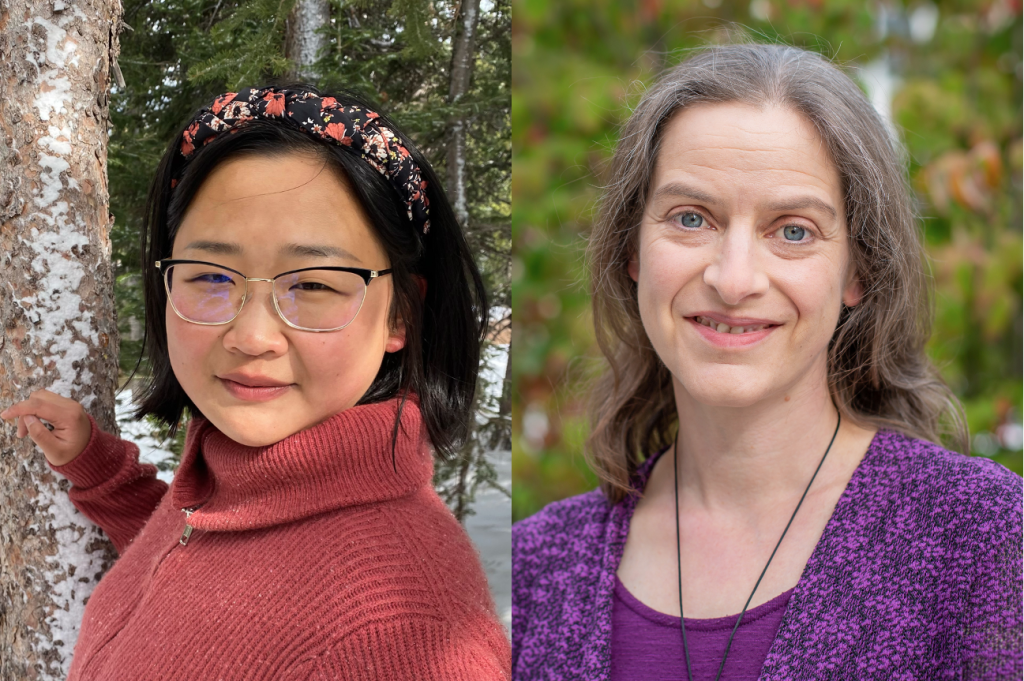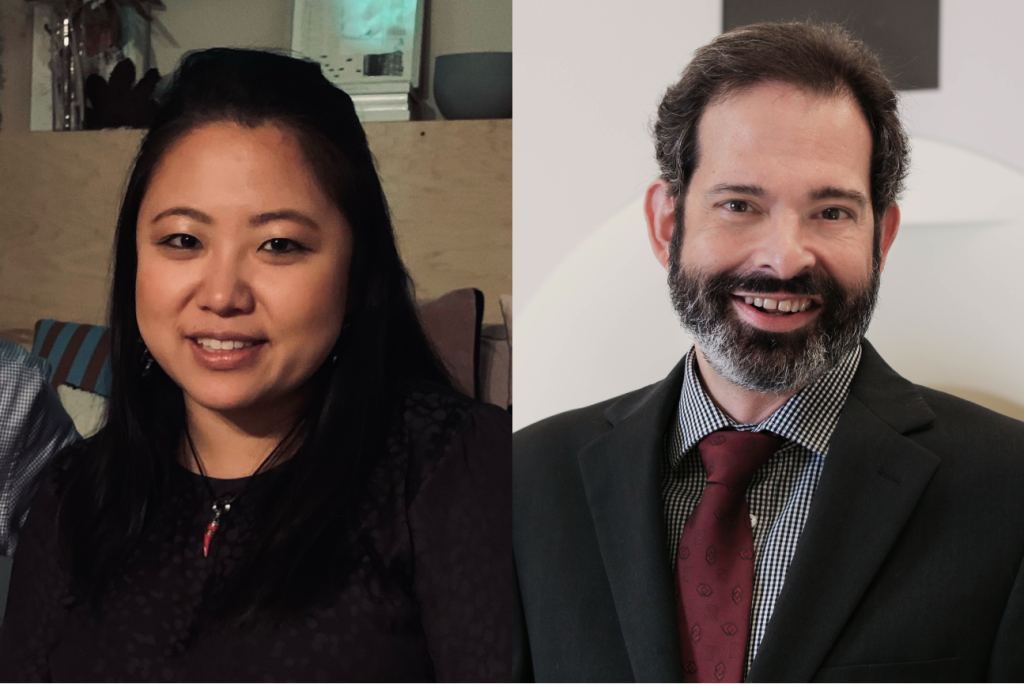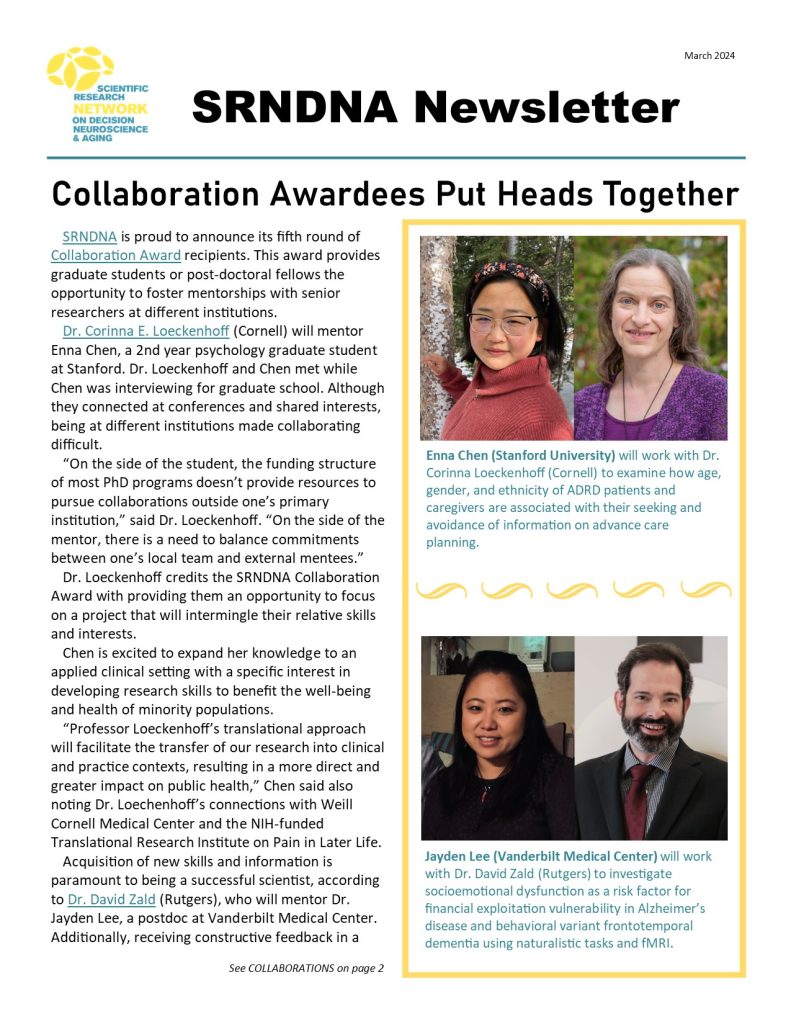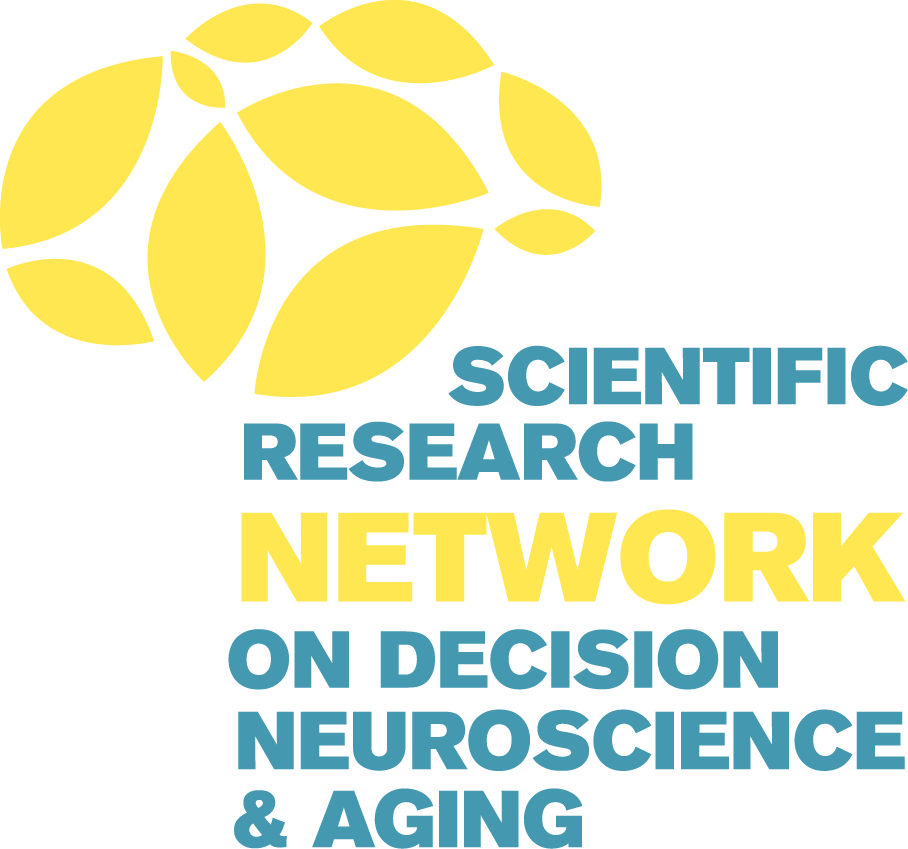Collaboration Awardees Put Heads Together
By Sera Gonzalez
March 1, 2024
SRNDNA is proud to announce its fifth round of Collaboration Award recipients. This award provides graduate students or post-doctoral fellows the opportunity to foster mentorships with senior researchers at different institutions.
Dr. Corinna E. Loeckenhoff (Cornell) will mentor Enna Chen, a 2nd year psychology graduate student at Stanford. Dr. Loeckenhoff and Chen met while Chen was interviewing for graduate school. Although they connected at conferences and shared interests, being at different institutions made collaborating difficult.

Enna Chen (Stanford University) will work with Corinna Loeckenhoff (Cornell) to examine how age, gender, and ethnicity of ADRD patients and caregivers are associated with their seeking and avoidance of information on advance care planning.
“On the side of the student, the funding structure of most PhD programs doesn’t provide resources to pursue collaborations outside one’s primary institution,” said Dr. Loeckenhoff. “On the side of the mentor, there is a need to balance commitments between one’s local team and external mentees.”
Dr. Loeckenhoff credits the SRNDNA Collaboration Award with providing them an opportunity to focus on a project that will intermingle their relative skills and interests.
Chen is excited to expand her knowledge to an applied clinical setting with a specific interest in developing research skills to benefit the well-being and health of minority populations.
“Professor Loeckenhoff’s translational approach will facilitate the transfer of our research into clinical and practice contexts, resulting in a more direct and greater impact on public health,” Chen said also noting Dr. Loechenhoff’s connections with Weill Cornell Medical Center and the NIH-funded Translational Research Institute on Pain in Later Life.
Acquisition of new skills and information is paramount to being a successful scientist, according to Dr. David Zald (Rutgers), who will mentor Dr. Jayden Lee, a postdoc at Vanderbilt Medical Center. Additionally, receiving constructive feedback in a collaborative setting can have real benefits.
Jayden Lee (Vanderbilt Medical Center) will work with David Zald (Rutgers) to investigate socioemotional dysfunction as a risk factor for financial exploitation vulnerability in Alzheimer’s disease and behavioral variant frontotemporal dementia using naturalistic tasks and fMRI.

Dr. Zald admits that, though he’s been in the field for decades, he benefits tremendously from peer responses to his work. Junior researchers, he said, “have not had as many opportunities to put their ideas in motion and see how they are received.”
Dr. Lee is excited to collaborate with Dr. Zald to investigate the socioemotional and neural mechanisms underlying financial exploitation vulnerability and risky decision-making in dementia. She will use an interdisciplinary approach that includes cognitive tasks and task-fMRI. She’s looking to tap into Dr. Zald’s expertise in decision making and reward processing in psychiatric disorders, especially via fMRI, and apply that newfound knowledge for this project and her own long-term career goals.
“I am very excited to forge this new mentor-mentee relationship, which would not have been likely to develop without this award,” said Dr. Lee.
Dr. Zald highlighted the more pragmatic component to collaborations between junior and senior researchers.
“We go to school for years, but take no courses in grant writing, managing labs, mentoring, etc.,” he said. “Having people with first-hand experience who can provide advice on handling those challenges is so helpful.”
Dr. Loeckenhoff also commended the efforts of the Collaboration Awards and how they provide an incentive for short-term, focused collaborations, allowing junior researchers to grow their mentoring network and research skills.
But it is not all one-sided.
“There is something that is just deeply gratifying in watching someone develop and knowing that you contributed to their success,” Dr. Zald said.

Also in this issue, announcement of SRNDNA Fellow update and information about Computational Modeling Workshop.
View the March 2024 newsletter here.

You must be logged in to post a comment.